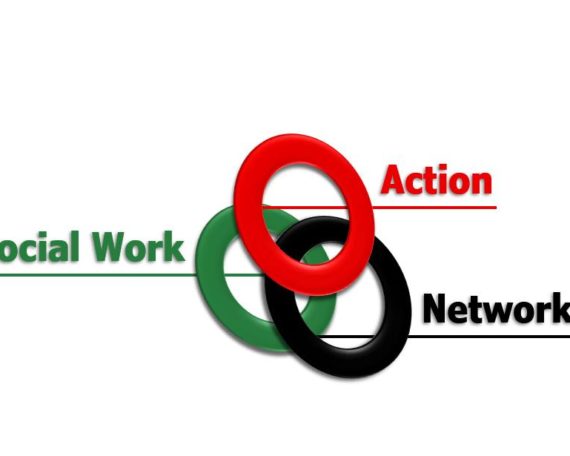Ironically, Gove’s analysis is itself remarkably simplistic and lacks an appreciation of how students are equipped with a with number of theories, methods and skills to take into practice, alongside understandings and critiques of social problems at structural, cultural and interpersonal levels. More importantly the speech either misses or functions as a deliberate smokescreen to cloud the true problems affecting social work; reduced funding, low political priority, excessive caseloads and growing client demand. This week a letter signed by a number of social work academics – including many in SWAN – was published in the Guardian on Thursday 14th November to respond to Gove’s damaging comments. The text of the letter appears below:
It is heartening to hear Michael Gove acknowledge that his life was transformed through the skill of the social workers involved in placing him for adoption (Gove calls for radical reform of social work, 12 November). Like David Cameron’s recognition in his conference speech that social work is “a noble and demanding vocation”, Gove’s statement is in welcome contrast to the vilification of social workers in which politicians and the media too often indulge.
It’s difficult to escape the conclusion, however, that Gove’s praise amounts to little more than a cover for attacking the social science and ethical basis of the profession. He suggests, for example, that “idealistic students” are being encouraged to see service users as having been “disempowered by society” and as “victims of social injustice”. In fact, the promotion of agency, self-determination and independent living continue to be at the heart of social work education and social work practice, not least in relation to current personalisation agendas. Social work is an evidence-based profession, however. When highly respected research studies such as Wilkinson and Pickett’s The Spirit Level show the extent to which inequality contributes to social problems – and when even a former Conservative prime minister laments the lack of social mobility in the UK – then social workers need to recognise this in their practice. The alternative is the kind of victim-blaming and scapegoating of poor and disabled people that too often characterises current government attacks on people on benefits.
The main problem facing the social work profession at present is not dogma, but reduced funding, low political priority, excessive caseloads and growing client demand. When the Institute for Fiscal Studies calculates that austerity policies will push an extra 200,000 children below the poverty line, and when more than half a million people are forced to rely on food banks, then to suggest that social problems are primarily the result of people making “the wrong choices” underlines the extent to which the world inhabited by Gove and his public-school colleagues is a very different one from that inhabited by most of us, especially those needing social work support.
Professor Iain Ferguson University of the West of Scotland
Professor Susan White University of Birmingham
Emeritus Professor Ann Davis University of Birmingham
Professor Brid Featherstone Open University
Professor Vivienne Cree University of Edinburgh
Professor Nigel Parton University of Huddersfield
Professor Imogen Taylor University of Sussex
Professor Mike Fisher University of Bedfordshire
Professor Brigid Daniel University of Stirling
Professor Tim Kelly University of Dundee
Professor Ian Butler University of Bath
Emeritus professor John Harris University of Warwick
Professor Peter Beresford Brunel University
Professor Michael Lavalette Liverpool Hope University
Professor Stephen Webb Glasgow Caledonian University
Professor Jim Campbell Goldsmiths, University of London
Professor Ravinder Barn Royal Holloway, University of London
Professor Jane Tunstill Royal Holloway University
Professor Jonathan Scourfield University of Cardiff
Professor Margaret Holloway University of Hull
Professor Jonathan Parker Bournemouth University
Professor Aidan Worsley University of Central Lancashire
Professor Nigel Thomas University of Central Lancashire
Professor Hugh McLaughlin Manchester Metropolitan University
Professor Brian Littlechild University of Hertfordshire
Professor Kirsten Stalker University of Strathclyde
Professor Shula Ramon Anglia Ruskin University
Professor Nina Biehal University of York
Professor June Thoburn University of East Anglia
Professor Roger Evans Liverpool John Moores University
Professor Jan Horwath University of Sheffield
Professor Elaine Sharland University of Sussex
Professor Kate Wilson University of Nottingham
Professor Marion Brandon University of East Anglia
Dr Terry Murphy Teeside University
Mo McPhail Open University (Scotland)
Linda Walker University of Dundee
Mark Smith University of Edinburgh
Di Bailey Nottingham Trent University
Ailsa Stewart University of Strathclyde
Neil Quinn University of Strathclyde
Beth Weaver University of Strathclyde
Evelyn Vrouwenfelder University of Strathclyde
Barrie Levine Glasgow Caledonian University
Vasilios Ioakimidis University of Durham
Di Bailey Nottingham Trent University
Simon Cardy Advanced social work practitioner, Wolverhampton
SWAN is currently putting together a pamphlet entitled ‘Why Michael Gove is Wrong: In Defence of Social Work’ as a contribution to the present debate about social work and social work education. We hope that this will be available before the Christmas period – more news will appear on the SWAN website.

